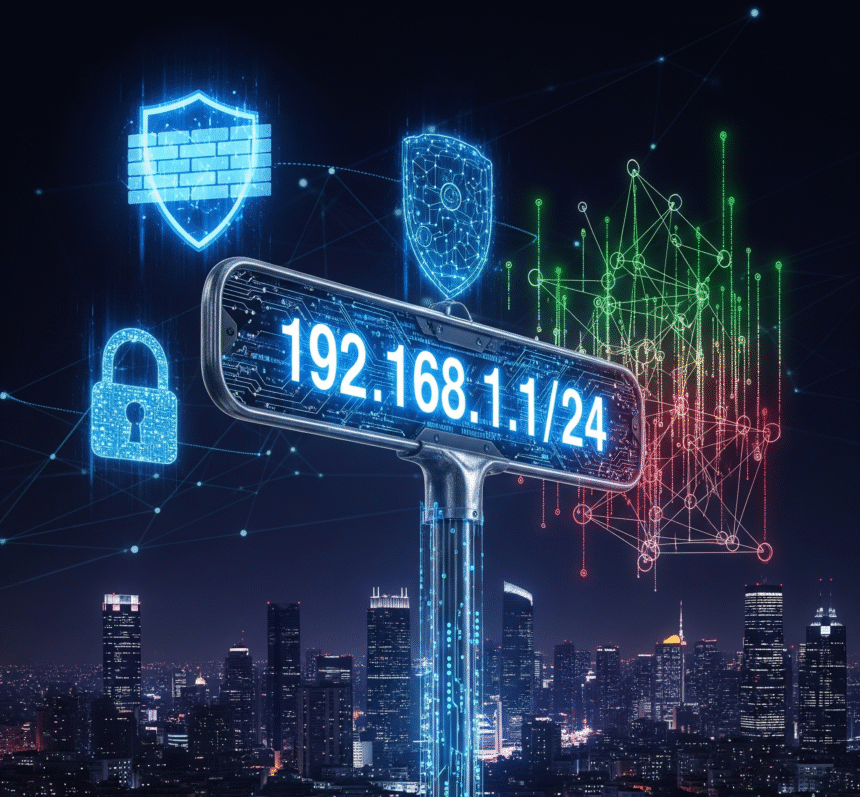Introduction
The digital world is full of technical terms, IP addresses, and identifiers that often confuse people. One such example is 185.63.253.2pp. At first glance, it looks like just a string of numbers and letters, but it actually points toward something quite important in the world of networking, online security, and digital services. To many users, this might look like random data, but once we break it down, it becomes much easier to understand.
In this blog, we’ll look at what 185.63.253.2pp means, why it matters, and how it could relate to your browsing, cybersecurity, and online activity. We’ll also cover different aspects such as risks, possible uses, and how to manage such IP-related elements safely.
What is 185.63.253.2pp?
The term 185.63.253.2pp looks like an IP address mixed with an extension. In networking, an IP address (short for Internet Protocol address) is a unique set of numbers used to identify a device or server on the internet. The first part of this identifier, 185.63.253.2, follows the standard IPv4 address format.
The additional “pp” is not part of a regular IP address. Instead, it often appears when an IP is associated with a specific process, portal, or service. In some cases, “pp” may stand for “peer-to-peer,” “proxy port,” or a similar technical extension used by developers or network administrators.
To put it simply:
-
185.63.253.2 → The base IP address.
-
pp → A suffix that may indicate a custom usage or configuration.
Together, 185.63.253.2pp may represent a server address, a proxy endpoint, or even a suspicious address that appears in system logs or error reports. Understanding its context is crucial before making assumptions.
Why IP Addresses Like 185.63.253.2pp Matter
Every time you connect to the internet, your device communicates using IP addresses. Think of them as digital street addresses. Without them, your computer wouldn’t know where to send or receive data.
When a specific address like 185.63.253.2pp shows up, it can matter for different reasons:
-
Website Hosting – It could be tied to a server hosting a website.
-
Security Checks – Cybersecurity tools may flag such IPs if they are linked to suspicious activity.
-
Network Troubleshooting – IT professionals often track these identifiers to fix connectivity issues.
The key takeaway is that IPs like this aren’t random. They usually have a purpose, and spotting them in your system logs or browser activity can mean there’s a connection that needs closer inspection.
Common Uses of 185.63.253.2pp
Although 185.63.253.2pp is not a standard domain name, it could serve multiple roles depending on where it appears. Some common scenarios include:
-
Proxy Servers
A proxy server acts as an intermediary between your device and the internet. If 185.63.253.2pp is connected to a proxy, it might be used to mask a user’s real IP address. -
Peer-to-Peer Networks
In some cases, the “pp” extension may point toward peer-to-peer file sharing systems. These networks often rely on direct IP connections. -
Testing and Development
Developers sometimes assign unusual identifiers like this for internal testing. If you came across 185.63.253.2pp in a development environment, it may be harmless. -
Suspicious Activity
On the flip side, if you didn’t knowingly set it up, its appearance could suggest unwanted connections, possibly linked to malware or unauthorized network access.
How to Identify if 185.63.253.2pp is Safe
Not every unusual IP address is harmful, but caution is always wise. If you notice 185.63.253.2pp on your system or network, here are some steps to check its safety:
-
Run a WHOIS Lookup – This lets you see which organization owns the IP address. If it belongs to a reputable hosting provider, it’s likely safe.
-
Check Security Logs – Many antivirus and firewall tools provide logs showing why a specific IP was flagged.
-
Use Online Threat Intelligence Tools – Websites like VirusTotal and AbuseIPDB can help you see if the IP has been reported for malicious behavior.
-
Consult an IT Professional – If you’re unsure, an expert can analyze whether the connection poses risks.
By taking these steps, you can better understand whether 185.63.253.2pp is harmless or potentially dangerous.
Risks Associated with 185.63.253.2pp
While it may look harmless, an address like 185.63.253.2pp can sometimes be linked to risky behavior, especially if it shows up unexpectedly. Possible risks include:
-
Phishing Servers – Cybercriminals may use certain IP addresses to host fake websites.
-
Botnet Activity – Some infected devices connect to hidden servers through unusual addresses.
-
Unwanted Tracking – An IP like this may appear if someone is using a proxy or VPN service to monitor traffic.
That’s why awareness is important. Ignoring an unfamiliar IP can leave you exposed to vulnerabilities.
Signs That You Should Investigate 185.63.253.2pp
It’s not always easy to know whether you should worry about an IP address, but there are some warning signs to look for:
-
Your internet suddenly becomes slower when the address appears in logs.
-
Security software alerts you about 185.63.253.2pp.
-
You see unknown outbound connections from your device.
-
Emails or web forms direct you toward this IP instead of a proper domain name.
If any of these signs appear, it’s a good idea to investigate further rather than ignoring them.
How to Protect Yourself from Suspicious IPs Like 185.63.253.2pp
Prevention is always better than repair when it comes to cybersecurity. If you’ve seen 185.63.253.2pp linked to your system or network, you can take protective measures to reduce risks.
First, always ensure that your firewall and antivirus software are active and updated. Firewalls can block suspicious inbound and outbound connections, while antivirus software can catch malware that tries to connect to unknown IPs. Second, adopt the habit of checking your system and browser logs regularly. Many people only review logs after a security issue occurs, but monitoring them routinely helps you spot unusual activity earlier.
Another step is to use a VPN from a trusted provider. While some shady services may redirect traffic to questionable IP addresses, reputable VPNs enhance your privacy by masking your real IP safely. Always choose services that have transparent policies and strong reputations.
How IT Professionals Handle IPs Like 185.63.253.2pp
When IT professionals encounter addresses like 185.63.253.2pp, they follow systematic steps to evaluate and respond. First, they use diagnostic tools to confirm whether the IP is actively communicating with their network. Then, they often run WHOIS and reverse DNS lookups to learn who owns the IP and what services it might host.
If the IP seems suspicious, IT teams may block it temporarily and monitor whether network performance improves. In cases where the IP is linked to malicious activity, they escalate the issue by adding it to a blacklist and reporting it to databases like AbuseIPDB. These professional steps are valuable because they prevent potential attacks while keeping networks safe.
Monitoring and Reporting Suspicious IP Addresses
Monitoring tools are essential when dealing with entries such as 185.63.253.2pp. Tools like Wireshark, Splunk, or Nagios can track how data flows in and out of your system. If unusual addresses appear frequently, these platforms can help highlight patterns.
Reporting is equally important. Many organizations rely on global databases that collect reports of malicious IP activity. Submitting suspicious entries ensures that other individuals and businesses stay alert. For users who may not be experts, most antivirus and security programs include simple buttons to report flagged IPs. This collective effort strengthens online safety across networks worldwide.
The Importance of Digital Awareness
It’s easy to overlook technical details like IP addresses, but digital awareness is key to safe browsing. Recognizing identifiers such as 185.63.253.2pp empowers users to act early if something unusual arises.
Think of it this way: just as you wouldn’t ignore strange activity in your neighborhood, you shouldn’t ignore unusual IPs appearing in your online logs. The more you understand about how these addresses work, the better equipped you’ll be to protect yourself, your devices, and your data.
Practical Tips for Everyday Users

Not everyone has advanced IT knowledge, but even everyday users can take steps to deal with suspicious IPs. Some practical tips include:
-
Avoid clicking unknown links in emails or messages, as they can redirect to hidden IP addresses.
-
Check your router logs occasionally; most modern routers provide easy access to recent activity.
-
Update your devices regularly, since outdated software often becomes an entry point for malicious connections.
-
Use multi-factor authentication (MFA) for online accounts, reducing risks if an IP is linked to login attempts.
These small habits reduce vulnerabilities and help you stay ahead of potential threats.
Conclusion
The entry 185.63.253.2pp may look like random numbers and letters, but in reality, it’s a marker that can reveal important details about network activity. By understanding its structure, possible uses, and risks, users can make better decisions about whether it’s harmless or a threat.
Digital safety depends on awareness and proactive behavior. Monitoring logs, running checks, and using trusted tools can keep you protected from potential issues tied to suspicious IP addresses. Whether you’re an everyday user or an IT professional, recognizing identifiers like 185.63.253.2pp equips you with the knowledge to maintain a safer online experience.
FAQs About 185.63.253.2pp
Q1. Is 185.63.253.2pp a real IP address?
Yes, the first part (185.63.253.2) follows the standard IPv4 format. The “pp” suffix is unusual and may indicate a custom tag, proxy, or peer-to-peer association.
Q2. Should I be worried if I see 185.63.253.2pp in my logs?
Not always, but it’s worth checking. Run a WHOIS lookup or consult security tools to determine if the IP is safe or suspicious.
Q3. Can 185.63.253.2pp be related to malware?
It’s possible. Some malware connects devices to hidden servers through IP addresses like this. Always verify if the connection is legitimate.
Q4. How can I block 185.63.253.2pp if I suspect it’s harmful?
You can block it through your firewall settings or router configuration. IT professionals often blacklist such IPs to prevent connections.
Q5. What does the “pp” mean in 185.63.253.2pp?
The suffix is not standard but may represent peer-to-peer, proxy port, or an internal system tag. Context is key to understanding its purpose.







